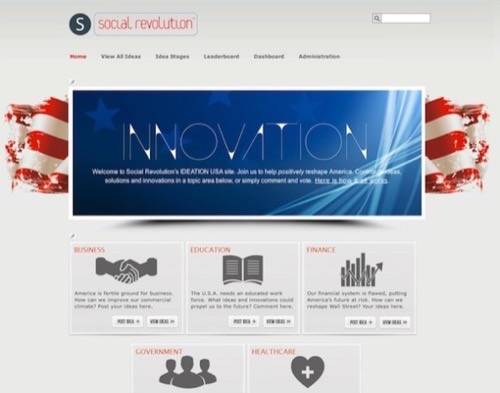
How often have you thought our country needs to change? That something is fundamentally and systemically wrong that needs fixing? And that things could be fixed if we leveraged social media to find the best ideas to agree on?
In the world of technology, we’re used to upheaval. In fact, we rely on it to drive innovation and improvements. So why can’t we use technology to solve some of the underlying problems we all agree need to change?
Technology innovations have often been able to fill gaps – even leapfrog them in many cases – between our “old world” habits and the demands of the “new world.”
How Technology Plugs Gaps
Apple is a classic example of what I’m talking about. We used to live in a world where music lived on compact discs. Then came MP3 files, which made music infinitely more accessible – too accessible some might say.
But it took Apple to make buying music and transferring it to a portable player easy, putting your entertainment microcosm in the palm of your hand. Today, the iTunes Store is the world’s largest music retailer.

Another revolution is taking place in retailing, where the use of “big data” – the technology of parsing huge amounts of customer information to help companies like Target, for example, identify whether a female shopper is pregnant and offer her appropriate products – is significantly reshaping marketing.
This type of insight has privacy advocates up in arms. Technology’s benefits often cut both ways, yet it’s evident that this type of arrangement holds the potential to benefit both marketers and consumers – letting Target offer shoppers useful and timely promotions without consumers having to lift a finger.
In our high-speed world ruled by Time Compression, nothing has roiled financial markets more than the art of high-frequency trading, which combines sophisticated algorithms with millisecond performance to give equity traders a distinct advantage.
And in education, perhaps the thorniest challenge of all, Khan Academy has made giant strides using a primitive set of YouTube videos that can be watched for free. This is a remarkable achievement considering U.S. spending on education has jumped 17-fold since 1970 without a lot to show for it.

Change Everyone Can Believe In
These examples vividly illustrate how technology has brought beneficial change to entertainment, retailing and education, so the question is why can’t we use technology to change the body politic?
As the founder of Social Revolution, I am trying to do just that. Social Revolution aims to harness innovative ideas through crowdsourcing, and distill them into a “Business Plan for U.S.A.” to help propel the country forward.
We’re going to crowdsource ideas in five key areas – education, healthcare, business, finance and government. All these sectors are clearly ripe for a major disruption.
To manage the idea stream, we’re relying on an innovative crowdsourcing platform from Pleasanton, Calif.-based Spigit. If you’re a company or individual that wants real change, and have a cogent idea about how to implement it, we want to hear from you. If you’re using technology to make things better, we need to hear from you.
At Social Revolution, we believe that applying the new technologies offered by social media will unleash the power of ideas and turn the status quo on its head. Crowdsourcing has already shown its disruptive power in a number of fields.
Wikipedia is perhaps the best-known example of a crowdsourcing success story, leading Encyclopedia Britannica to give up on its print edition earlier this year.
Yelp has similarly reinvented the restaurant review business, while TripAdvisor has upended the travel industry with its incisive crowdsourced reviews.
The time is certainly right. A surging interest in “clicktivism” has enabled Change.org to sign up 13 million clicktivists, proving that our population wants to get more engaged and involved.
As President John F. Kennedy once said, “A man may die, nations may rise and fall, but an idea lives on.” To put a sharper point on it, allow me to paraphrase Steve Jobs’ pitch to hire Pepsi’s John Sculley, “Do you want to read sugar water the rest of your life, or do you want to come with me and change the world?”





















